Here's how much sewage is being pumped into rivers in Preston, Chorley and South Ribble
and live on Freeview channel 276
Figures from the Rivers Trust show that water that children and dogs paddle in, people fish in and sail boats on, have been exposed to human and household waste for more than 45,338 hours.
>>>Click here to view the sewage map for yourself
United Utilities (UU), which provides water and wastewater services in the North West, had the worst record for sewage spillages in England, which happen during and after heavy rainfall when storm overflows act like a relief valve, releasing rainwater mixed with sewage to stop sewers being overwhelmed.
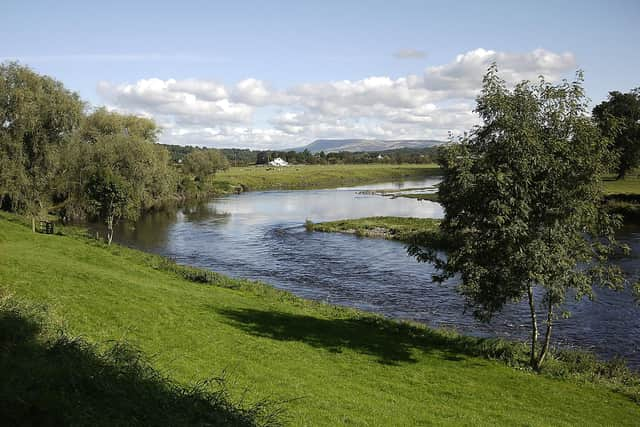

Advertisement
Hide AdAdvertisement
Hide AdBut while the Government says it's "a growing public health problem" and that "water companies are not doing enough", UU insist that North West sewers were built to take away rainwater as well as sewage, they're investing heavily in improving overflow infrastructure and have already seen a big reduction in the number of storm spills from 2020 to 2021.
The Ribble Rivers Trust has claimed it's not as big a problem as climate change, and that rivers are safe to swim in most of the time.
Why does this happen?
Water firms are legally allowed to release untreated sewage into rivers and the sea to stop waste backing up in streets and houses when Britain’s sewers struggle to cope in heavy rain.
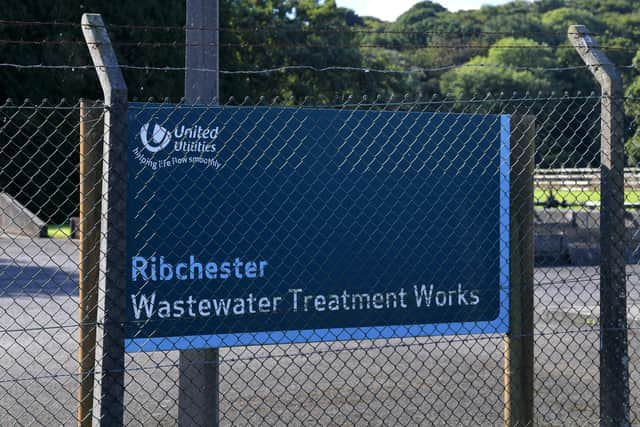

This can happen due to sewer blockages or because of old or outdated sewage treatment plants.
Advertisement
Hide AdAdvertisement
Hide AdMany of the sewers in the North West were designed to function in this way and most rivers in larger towns in our area were culverted, meaning a structure has been created to channel water past an obstacle, and straightened hundreds of years ago in order to remove sewage from the towns at a more rapid rate.
What’s the problem?
Public health bosses say that when bacteria from human faeces are ingested, it increases the risk of significant infections including antibiotic resistant bacteria.
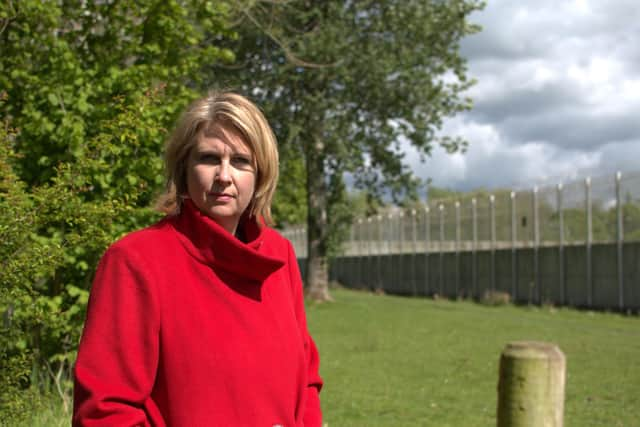

The Government has called it "a growing public health concern" and said: “nobody wants a child to ingest human faeces”.They said: “Tap water in the UK is safe. No-one expects river water to be of drinking standard, but where people swim or children play they should not expect significant doses of human coliforms if they ingest water.”
The Rivers Trust has urged people to avoid entering the water immediately downstream of these overflows, especially after it has been raining.
Advertisement
Hide AdAdvertisement
Hide AdThis has been echoed by Clitheroe-based Ribble Rivers Trust.
Where are the worst affected areas in Lancashire?
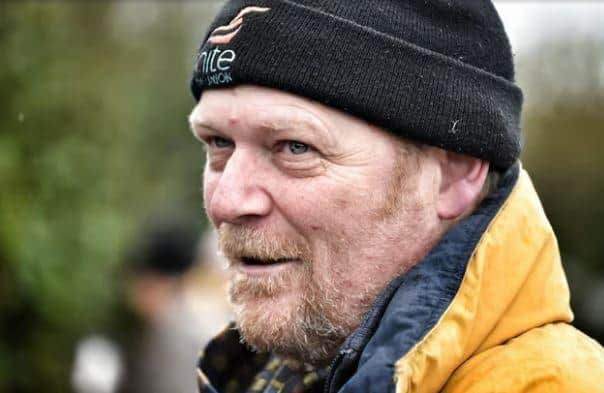

According to 2021 data, the worst area for sewage into rivers in central Lancashire was Chorley, where 4,014 spills were recorded, with sewage pouring into water courses for 26,625 hours.
In Preston there were 2,200 spills over 12,394 hours and in South Ribble there were 1,246 spills over 6,319 hours.
The worst place for sewage overspills in the area Ribchester Waste Water Treatment Works (WWTW), which spilled sewage into the River Ribble for 5,016 hours.
Completing the top five worse offenders are:
Advertisement
Hide AdAdvertisement
Hide AdMere Brow WWTW into the Tarleton Runner (2,262 hours) Barton Waste Water Treatment Works into Barton Brook (2,109 hours) Withnell Fold Network Pumping Station into a tributary of the River Lostock (1,764 hours) Croston WWTW into the River Yarrow (1,484 hours).
All of the waste water treatment works and the pumping station are managed by United Utilities.
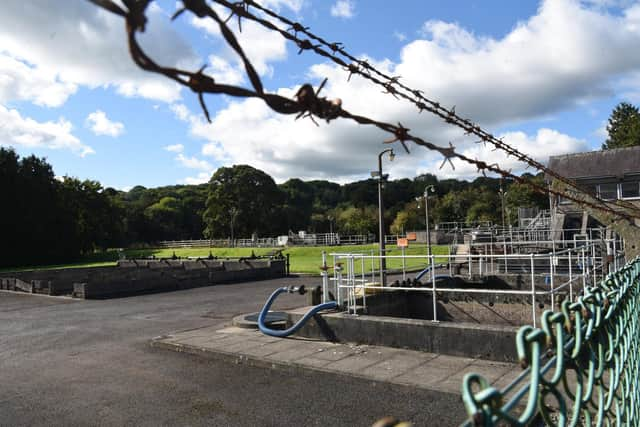

In 2021, United Utilities recorded the most raw sewage spillages into English Rivers with 81,588. This was more than 11,000 spills the next highest, Yorkshire Water.
"Like living in the Middle Ages”
Councillor Keith Martin, who is South Ribble Council's lead member for Climate Change, said the figures were "quite shocking".
Advertisement
Hide AdAdvertisement
Hide AdHe said: "It's like living in the Middle Ages, throwing stuff into the river and hoping it goes away.
"The problem is though, that the Ribble estuary is tidal and so it swills round for a while.
"And the worry, given that they test sewage water for things like Covid and Monkeypox, is that these things are contagious."
What does the Government say?
In an opinion piece released in June, Professor Chris Whitty, Chief Medical Officer for England, Jonson Cox, Ofwat chair and Emma Howard Boyd, Environment Agency chair said: “Raw sewage from storm overflows and continuous discharge of waste containing viable organisms from sewage treatment works is an increasing problem.
Advertisement
Hide AdAdvertisement
Hide Ad"This is a serious public health issue for government and regulators and it is clear that the water companies are not doing enough."
They commented that the use of overflows is now “not exceptional”, and in some cases, up to 200 discharges a year are occuring.
They say: “This is obviously unacceptable on public health grounds.
"Whilst zero discharges are technically achievable the cost of this may not be justified; to reduce the frequency down to genuine storms should however be a minimum expectation.”
What can be done?
Advertisement
Hide AdAdvertisement
Hide AdThe Government believe there are solutions to getting storm overflows back to only functioning only in very high rainfall conditions.
These involve better operational management, innovation and investment.
This is seen as the job of water companies, and four have recently agreed to reduce their overflows to an average of no more than 20 discharges a year by 2025 – but health chiefs say “we need to go much further”.
What about MPs?
In October 2021, a proposal from the Lords to the Environment Bill that would have placed legal duties on the companies to reduce discharges was defeated by 265 MPs’ votes to 202.
Advertisement
Hide AdAdvertisement
Hide AdKatherine Fletcher, MP for South Ribble, voted to allow the practice to continue. She has not responded to questions from the Post, with her office saying she will be unavailable during the period of national mourning.
MPs for Chorley, Preston and the Ribble Valley did not record votes on the issue.
What does United Utilities say?
UU say that for decades, the North West’s sewers were built to take away not just sewage, but also rainwater, and are an important part of the wastewater network.
They say the Environment Agency estimates that 70 per cent of local river pollution is due to run off from highways and agricultural fields, private septic tanks, private drainage being incorrectly connected and other illegal activity.
Advertisement
Hide AdAdvertisement
Hide AdThe remaining 30 per cent of the impact is due to wastewater treatment processes and combined storm overflows (CSOs).
Comparing 2020 with 2021, the number of storm spills in the UU area has reduced by 28 per cent and the duration of spills has reduced by 25 per cent.
More rainfall and more sewers
A spokesperson for United Utilities said: “The North West has a much higher proportion of sewers that are designed to take away both raw sewage and rainfall than other parts of the country - more than half of our wastewater network is this type of ‘combined’ system.
"The North West is also the wettest part of the country, so this is why storm overflows, which are designed to protect homes from flooding during heavy rainfall, operate more often in this region.
Advertisement
Hide AdAdvertisement
Hide Ad“The release of storm water is permitted during heavy rainfall, but we recognise the need to improve the wastewater network to reduce the impact on our rivers.
"The Environment Agency estimates that 30 per cent of river pollution comes from wastewater treatment works and storm overflows, with the other 70 per cent from highways and agricultural fields, private septic tanks, private drainage being incorrectly connected, and other illegal activity.
"We take our environmental responsibilities seriously and in the 20 years up to 2020 we invested £1.2 billion to improve overflow discharges to reduce spill frequency, volume and impact on the environment.
"Between 2020 and 2025 we are investing a further £230 million to reduce the impact of storm overflows across the North West, and we are currently developing our investment plans to prioritise further improvements in the longer term.”
The Ribble Rivers Trust
Advertisement
Hide AdAdvertisement
Hide AdThe Trust said the problem in the North West isn’t as bad as some other parts of the country.
A spokesman said: “Our rivers are safe to swim in most of the time. As part of our campaign to get bathing water status at Edisford Bridge, Clitheroe, we have been water sampling. Our results show that the water here has actually reached the ‘excellent’ category for most of the summer.”
>>>Click here to read more about this schemeThey added: “(Storm overflows) are a problem, but it is by no means the worst issue facing our rivers right now.
"The biggest issue is climate change and it’s affects. Sewage pollution is one of many small problems which are all adding together to bring down the water quality, habitat quality, and water quantity in the Ribble catchment.
Advertisement
Hide AdAdvertisement
Hide Ad"To put it in perspective the Ribble’s river catchment covers an area of 750 square miles and contains more than 3,479 miles of watercourses. All of these rivers face bigger threats than sewage pollution.”
They added: “In a way it is something that has always happened. Most of the rivers in Blackburn, Burnley, and other larger towns in our river catchment were culverted and straightened hundreds of years ago especially to remove sewage from the towns at a more rapid rate.
"Things have improved dramatically since then. Even recently United Utilities have opened a new wastewater processing plant at Samlesbury which uses state of the art technology to treat water.
"Generally water companies should only discharge sewage into rivers in exceptional rainfall events (although it is happening more regularly than this).
Advertisement
Hide AdAdvertisement
Hide Ad"We always recommend that people don’t swim after big rainfall events. It’s not just sewage that’ll be running into rivers. All roadside drains lead to rivers, so things like dog poo, litter, plastics from tyres, an heavy metals from car exhaust fumes will also be present.
"Rainfall also increases the amount of run off from agricultural pollution so there is an increased chance of animal faeces. Plus, the heavy rains make the water levels and flows more unpredictable, so it’s unlikely people would be in there anyway.”